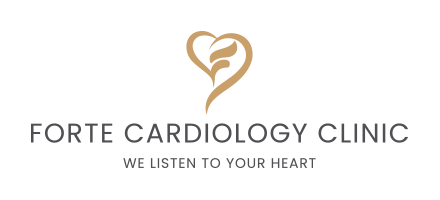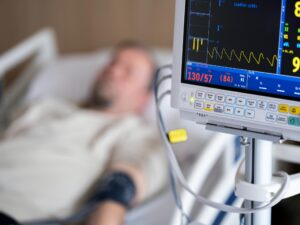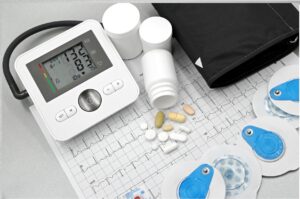Have you ever experienced an unexpected flutter in your chest and wondered, “Am I having a heart attack?” Only to brush it off as a momentary annoyance later. That erratic heartbeat you just felt might be more than a momentary annoyance;, it could be a sign of arrhythmia, and surprisingly, everyday factors might be causing it. Understanding these hidden triggers and learning how early arrhythmia treatment can help you restore your rhythm and peace of mind.
1. Caffeine Overload
That second (or third) cup of coffee may feel harmless, but too much caffeine can overstimulate your heart. It’s a natural stimulant that increases adrenaline, which in turn can upset your heart’s electrical system. If you find your heart racing after your afternoon latte, consider cutting back, perhaps switching to green tea or decaf.
2. Dehydration or Electrolyte Imbalance
Your heart relies on a precisely balanced mix of electrolytes like potassium, magnesium, calcium and sodium to maintain a steady beat. Skipping hydration, especially on warm days or during exercise, can disrupt this balance and lead to palpitations. Make it a ritual to sip water throughout the day, and include a banana, spinach or avocado to keep those electrolytes in check.
3. Hidden Stress and Anxiety
Stress is more than a mental burden it influences your cardiovascular system. Even if you don’t feel overwhelmed, chronic stress boosts cortisol and adrenaline, which can trigger arrhythmia episodes. Mindfulness techniques, such as guided meditation or gentle yoga, help calm your nervous system. If stress persists, consider professional support as part of a comprehensive arrhythmia treatment plan.
4. Certain Over-the-Counter Medications
Decongestants, appetite suppressants and allergy relief pills often contain stimulants like pseudoephedrine, which can elevate heart rate and blood pressure. Many people take these without thinking about the cardiac effects. Always check product labels and speak to a pharmacist or your GP if you’re prone to palpitations. They can recommend safer alternatives.
5. Sleep Deprivation
Your heart works harder when you’re sleep-deprived. Missing regular, restful sleep increases stress hormones and inflammation, both known arrhythmia triggers. Aim for 7–9 hours of quality sleep each night. Simple steps like turning off screens an hour before bed, keeping your room cool and quiet, and sticking to a routine can make a real difference.
Why Arrhythmia Treatment Should Be Personal
If you’re noticing irregular heartbeats, pinpointing the root cause is vital. That’s where a personalised arrhythmia treatment from a clinic like Forte comes in:
- Thorough assessment: Holistic evaluation using ECGs and lifestyle reviews reveals your unique triggers.
- Custom plans: Options range from lifestyle adjustments and medications to procedures like ablation, tailored to your circumstances.
- Ongoing support: Regular monitoring and guidance ensure your heart rhythm stays steady and any tweaks are timely.
What You Can Do Today
- Log your lifestyle: Note what you eat, drink, sleep and your stress levels alongside any palpitations.
- Eliminate hidden stimulants: Review your medication and reduce caffeine intake.
- Seek a professional evaluation: If you’ve tried adjustments and still experience irregular heartbeats, schedule an arrhythmia treatment consultation.
Your Heart Deserves Care
Arrhythmia treatment isn’t only about medications or procedures; it’s about finding the balance that works for you. By recognising these hidden triggers and partnering with experts like Forte, you can lower your risk, improve your wellbeing and regain rhythm in both body and life.
Feel your heart skip a beat more than usual? Don’t wait, book your arrhythmia review at Forte today, and take that vital step towards sustained health and peace.








